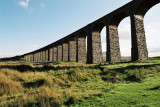Department of Civil Engineering
New Civil Engineering towards Safety and Symbiosis of Urban and Regional Systems
 Civil Engineering aims at creating a safe society in harmony with the environment, through the construction and preservation of fundamental social facilities. Civil Engineering Education is about helping the creation of an environment of cities and territories safe to natural and social disasters, and living in symbiosis with nature, through the preservation, lifetime management and revival of city facilities. We accept student’s ambitious to become the pillars of public service demanded by our society, and we develop them into individuals with broad academic horizons and specialist knowledge, and high level practical skills.
Civil Engineering aims at creating a safe society in harmony with the environment, through the construction and preservation of fundamental social facilities. Civil Engineering Education is about helping the creation of an environment of cities and territories safe to natural and social disasters, and living in symbiosis with nature, through the preservation, lifetime management and revival of city facilities. We accept student’s ambitious to become the pillars of public service demanded by our society, and we develop them into individuals with broad academic horizons and specialist knowledge, and high level practical skills.
Structure and Divisions
Civil Engineering is a diverse academic field, and has supported the civil society ever since Roman times. In the core of the Curriculum are the Civil Engineering Subjects, complemented by Subjects dealing with environmental considerations, the status quo of public facilities reflecting public opinion, as well as the internationalization of design codes and standards. The Department of Civil Engineering consists of the Human Safety Engineering Lab and the Environmental Symbiosis Engineering Lab.
The Human Safety Engineering Lab does teaching and research about urban safety against natural disasters and social disasters such as terrorism and accidents.
The Environmental Symbiosis Engineering Lab does teaching and research about the creation of an environment of cities and territories living in symbiosis with nature, as well as the preservation, lifetime management and revival of city facilities.
Message for International Students
Solving safety and environmental problems in urban and regional areas are common interests worldwide. “New civil engineering in the 21st century” focuses on various new engineering aspects while enjoying a well-built and established base of civil engineering. The program also emphasizes on public participation and international cooperation.
Courses offered to the students in Undergraduate, Master’s and Doctoral levels enable them to have deeper knowledge and understanding about the safety and environmental aspects of the modern society. The study area covers a wide range in the fields of disaster prevention and mitigation, environmental assessment and protection, infrastructure planning and management and geotechnical and structural designs. Students, who would like to make their career in public services whether at global or local levels, are very welcome. Currently, we have more than 10 overseas students from China, Korea, India and other countries.
Education/Research Fields
| Divisions | Education/Research Fields |
Keywords |
|---|---|---|
| Engineering of Human Safety | Structural Engineering for Urban Safety | Traffic-induced vibration of bridges, structural control, reliability-based design of structures, structural health monitoring, environmental vibration, structural concrete, nonlinear analysis, seismic performance evaluation, damaged structures, image analysis |
| Geotechnical Engineering for Urban Safety | Geomaterials, laboratory test, in-situ test, constitutive modeling, geo-analysis, soil reinforcement, soil improvement, geo-hazard, geo-environment | |
| Transport Systems Engineering | Transportation systems planning, infrastructure planning, decision making, policy analysis, behavior analysis, quality of service, global economy and local economy, network design, optimization, risk management | |
| Geotechnical Engineering for Disaster Reduction | Earthquake geotechnical engineering, geotechnical assessments & managements of natural disasters, pavement engineering, dynamic behavior of geotechnical materials & ground, geotechnical environment managements | |
| Earthquake Disaster Mitigation Engineering | Earthquake disaster prevention, lifeline, earthquake engineering, seismic design, seismic response, life-saving engineering, seismic risk | |
| Disaster-prevention Engineering for River Basin | Flood measurement system, inundation analysis, local remote sensing, flood forecasting system, open-channel turbulence, numerical fluid dynamics, river image engineering, urban water conservancy, civil engineering history, flood control concept | |
| Engineering of Environmental Symbiosis | Environmental Fluid Engineering | Environmental flow simulation, free-surface flow, coastal-flow field survey, turbulence modeling, computational fluid dynamics, atmospheric flow modeling |
| Engineering of Hydrospheric Environment | Catchment management, environmental hydraulics, river restoration, water purification, disaster prevention and mitigation | |
| Geo-environmental Engineering | Slope disaster prevention engineering, landform engineering, geoinformatics, risk communication, fracture mechanics, rock dynamics, wave theory | |
| Urban Preservation Engineering | Geotechnical hydraulics, geo-environmental risk, ground deformation, desertification, performance-based design for soil structures, geotechnical computation mechanics, mechanics of unsaturated soils, stress and strain of soils, international collaboration, disaster mitigation | |
| Urban Preservation Engineering | Concrete engineering, bridge structure diagnostics, maintenance, reliability analysis, infrastructure management, rock engineering, underground space development, structural maintenance, tunnel engineering, rock slope engineering | |
| Urban and Transport Planning and Management | Traffic engineering, transport network analysis, travel behavior survey & analysis, traffic flow dynamics, urban & regional analysis, urban modeling |
